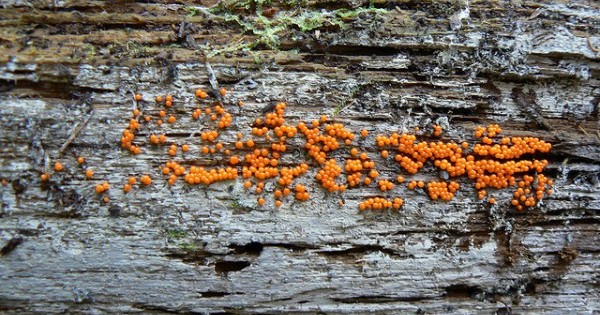
I think therefore I am strikes me as misguided. I think I am even when I’m not thinking. I think I am an organism. And that makes me a life cycle. And you’re one too. We life cycles, all of us, began as a single cell. One cell. I include the turtles, the microbes, the horses, the humans. We all began as one cell, and then that cell divided (mitosis) and became two cells, and two cells became four cells. We humans each have 10 trillion cells.
I have been dipping into John Tyler Bonner’s humorous Life Cycles, which gets my nomination for the Best Opening Line award: I have devoted my life to slime molds. Beyond that, it’s the only book I know that causes you think of your own true, individual, unique, brilliant, sensitive, irreplaceable self as a life cycle, one among zillions.
Speaking as one life cycle to another: first, we begin. And the biology of beginnings is rather remarkable. Let me count the ways.
There’s plain old mitosis, one cell ripping apart its paired chromosomes, replicating each one, and then dividing into two cells, clones of each other.
Another way is budding. In certain amoebas and yeasts, a bud appears on the parent body, a little knobby thing. Its cells multiply by mitosis. The bud grows into a small parent-shaped thing, and when it’s done, it breaks off and becomes a little one, whole and complete.
Yet another way is parthenogenesis (virgin birth). Here, the female lizard’s or fish’s eggs simply develop into whole organisms, no male required. Indeed, one species, the checkered whiptail lizard (Aspidoscelis tesselata) has no males.
Then of course, there’s sex, requiring both sexes. The chromosomes are ripped apart but instead of replicating themselves, they travel solo in gametes (sperm cell, egg cell) to find other chromosomes to pair with. This is not mitosis but meiosis (my-OH-sis). Mitosis is simple, but meiosis is not. To reproduce sexually you must find a mate. Then you must win your mate’s heart. There’s seeking, yearning, fighting, winning, losing, dating. And after all that, your offspring is not you. Unlike clones budded forth or replicated, your child carries only half your genes. Your grandchild carries only one-quarter of your genes. Given all this, you might ask, why did sexual reproduction evolve? But I digress.
One cell. Then development commences. From development on, life cycles differ wildly. One way is undertaken by John Tyler Bonner’s favorite cellular slime mold (Dictyostelium discoideum). This common soil-loving amoeba begins as an encapsulated spore. Out of the spore emerges a single amoeba. At first it moves around and eats, keeping strictly to itself. Upon depletion of available food, it becomes gregarious. Individuals congregate into a clump, called a slug, and the slug conducts itself as a multi-celled creature. It has a “head” and tends to crawl toward light. It’s actually an aggregation of 10,000 to two million individual amoebas. The thing crawls about leaving a little trail of slime. Next it forms a stalk. The “head” team rises, constructing with its many bodies a hollow stalk, which they now dive into, harden, and—most gallantly—die. The “tail” team has in this way been elevated to the top and becomes a mass of spores. The stalk’s height promotes spore dispersal via passing bugs and skunks.
There are other life cycles, including yours and mine. We begin. We develop, are born, develop some more. We come into reproductive age, we reproduce or do not reproduce. We grow old.
In the end we will, each and every one of us, disperse our molecules to other uses. This is annoying. After all, we are individuals—unique, brilliant, sensitive, irreplaceable.

